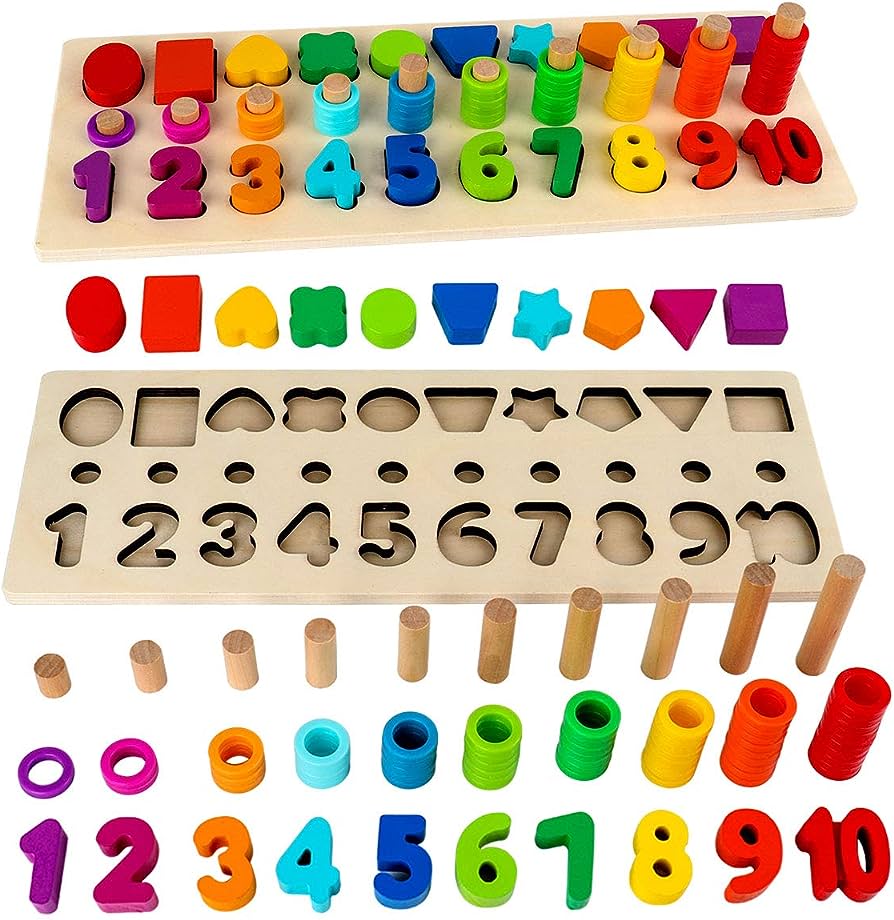
Introduction
The early years of a child’s life are marked by rapid development and exploration. It’s during this time that the foundations for learning are laid, making it essential to provide them with tools that stimulate their minds and creativity. One such tool that has gained immense popularity is pre school educational toys. These toys are designed to be more than just playthings – they are engaging tools that foster learning, cognitive growth, and skill development in young children.
What are Pre School Educational Toys?
Pre school educational toys are specifically crafted play items that are designed to promote learning and development in children aged 2 to 5 years, a crucial stage in their cognitive, emotional, and physical growth. These toys go beyond mere entertainment; they encourage hands-on exploration, imagination, and problem-solving skills.
Benefits of Pre School Educational Toys
These toys offer a plethora of advantages for children’s growth and development. They stimulate various aspects of learning and contribute to the overall development of skills such as motor skills, language acquisition, social interaction, and more.
Types of Pre School Educational Toys
Interactive Learning Toys
Interactive learning toys engage children through a variety of sensory experiences. They often feature lights, sounds, and textures that pique children’s curiosity and encourage exploration. These toys are especially effective for teaching concepts like shapes, colors, and numbers.
Creative Building Toys
Creative building toys, such as building blocks and magnetic tiles, enhance fine motor skills, spatial awareness, and creativity. They allow children to construct their own structures, fostering problem-solving abilities and spatial understanding.
Cognitive Skill Development Toys
Toys that focus on cognitive skills include puzzles, matching games, and memory games. These toys challenge children’s thinking abilities, memory retention, and logical reasoning.
Choosing the Right Pre School Educational Toy
Age-Appropriate Selection
Selecting toys that match a child’s age and developmental stage is crucial. Toys that are too advanced might frustrate them, while toys that are too basic might bore them.
Safety Considerations
Ensure that the chosen toys are made from non-toxic materials and have no small parts that could be a choking hazard. Always prioritize safety when selecting educational toys.
How Pre School Educational Toys Aid Learning
Developmental Milestones
Educational toys are designed to align with key developmental milestones. They target skills such as fine and gross motor skills, hand-eye coordination, and cognitive development.
Hands-on Learning Experience
Unlike passive forms of learning, educational toys provide a hands-on experience. This interactive approach helps children grasp concepts more effectively and retain information longer.
Role in Language Development
Educational toys often include features that encourage language development, such as storytelling, vocabulary building, and phonics exercises.
Fun and Engaging Activities with Educational Toys
Educational toys are designed to be enjoyable, fostering a love for learning from an early age. Engaging activities with these toys can include role-playing, problem-solving challenges, and creative exploration.
DIY Educational Toy Ideas
Parents and caregivers can get creative by making educational toys at home. Simple activities like creating sensory bins, crafting puzzles, and using household items for learning can be both fun and educational.
FAQs
How do I choose the right educational toy?
Select toys that align with your child’s age and developmental stage, focusing on their interests and learning needs.
What types of skills can educational toys develop?
Educational toys can enhance cognitive skills, motor skills, social skills, and language development.
Are electronic educational toys effective?
When used in moderation, electronic educational toys can be effective in promoting learning and engagement.
How many educational toys should a child have?
Quality matters more than quantity. A few well-chosen educational toys are more beneficial than an excess of options.
Can educational toys replace traditional teaching?
Educational toys complement traditional teaching methods by providing hands-on learning experiences.
What is the recommended age for these toys?
Most pre school educational toys are suitable for children aged 2 to 5 years.
How do I ensure the safety of these toys?
Always choose toys with non-toxic materials and no small parts that could pose a choking hazard.
Are wooden toys better than plastic ones?
Both wooden and plastic toys can be beneficial, but wooden toys are often more durable and environmentally friendly.
Are there educational toys for children with special needs?
Yes, there are educational toys designed specifically to cater to children with various special needs.
How can I encourage my child to play with educational toys?
Lead by example, show enthusiasm, and participate in play sessions with your child. Make learning with toys a fun bonding experience.